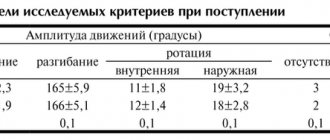pharmachologic effect
The enzyme lactase breaks down and ensures the absorption of the lactose carbohydrate supplied with food. Lactose is necessary for the formation of healthy intestinal microflora involved in the synthesis of B vitamins; promotes the absorption of calcium and magnesium, which are required for timely teething and bone growth, is a source of energy, and ensures the normal development of the nervous system and visual apparatus of a growing child. If there is a lack of the lactase enzyme in the intestine, part of the lactose disaccharide is not broken down and accumulates in the intestinal lumen, leading to fermentation processes and increased gas formation, and as a result, bloating, abdominal pain, and problems with stool soon after drinking milk and dairy products.
Conditions characterized by a lack of its own enzyme in the intestine are called lactase deficiency (LD) and are divided into primary and secondary.
The primary ones include: Temporary (transient) LI is more common in newborns with an “immature” digestive system, which may be associated with a complicated pregnancy or childbirth, in premature or low-birth-weight children. It manifests itself in the form of intestinal colic, bloating, problems with stool (diarrhea/constipation), crying and restlessness of the baby after feeding, and insufficient weight gain. Temporary lactase deficiency usually occurs at 2-3 weeks of age and goes away by 3-4 months, as the child’s own digestive system matures. Currently, transient FN is regarded as one of the main causes of the development of so-called “infantile intestinal colic”; it occurs in every 3rd full-term newborn and in the majority of premature and low birth weight children. Congenital LI is genetically determined and manifests itself from the first days of life.
Secondary LN - occurs against the background of infectious, immune or inflammatory changes in the intestines, including in children with signs of food allergies, atopic dermatitis, dysbacteriosis, parasitic infestations, and during the recovery period after infectious and viral intestinal diseases.
Indications for use
LACTAZAR® for children is recommended as a biologically active food supplement - an additional source of the lactase enzyme, the deficiency of which is usually manifested by: increased gas formation, colic, unstable stool (diarrhea, constipation). A deficiency of its own enzyme most often occurs in children of the first year of life with infant colic, in children during or after intestinal disorders, and with congenital lactase deficiency. Taking the lactase enzyme allows you to maintain breastfeeding and eliminate the cause of colic in case of a lack of enzyme in the intestines. Clinical studies of “LAKTAZAR® for children” conducted by the State Research Institute of Nutrition of the Russian Academy of Medical Sciences showed that in children aged from 2 weeks to 3 months with manifestations of a deficiency of their own enzyme (colic, bloating, unstable stool), the use of “LAKTAZAR® for children” within 7 days led to the elimination of manifestations of functional digestive disorders.
Lactazar (caps. 700 units/150 mg No. 100 for children)
A country
Russia
The country of production may vary depending on the batch of goods. Please check with the operator for detailed information when confirming your order.
Compound
1 capsule contains: at least 700 units of lactase enzyme. Excipients: maltodextrin, hard gelatin capsules.
pharmachologic effect
The enzyme lactase breaks down and ensures the absorption of the disaccharide lactose supplied with food (usually in milk and dairy products). Lactase enzyme deficiency can be congenital (primary lactase deficiency) or acquired (secondary lactase deficiency) and occurs against the background of infectious, immune, inflammatory and atrophic changes in the intestine. In case of deficiency of this enzyme when consuming foods containing lactose, symptoms of digestive disorders develop: flatulence, diarrhea, intestinal cramps. The use of the lactase enzyme helps to digest breast milk more efficiently without interrupting breastfeeding, and allows the full use of dairy products in the child’s diet.
Indications for use
LACTAZAR for children is recommended as a biologically active food supplement - an additional source of the lactase enzyme, the deficiency of which is usually manifested by: - increased gas formation, - colic, - unstable stool (diarrhea, constipation).
Mode of application
1 LACTAZAR® capsule per 100 ml of milk or formula. Give LACTAZAR® to the child before each milk feeding. Children under 1 year of age on breastfeeding and mixed feeding: Add the contents of the capsule to 5 ml or warmer (up to +37 ° C) water or expressed milk, stir until completely dissolved, give to the child from a spoon or bottle and then start feeding. Children under 1 year of age on artificial feeding: Add the contents of the capsule directly to a warm (up to +37 ° C) ready-made milk formula, mix, and start feeding after a few minutes. Children from 1 to 5 years: Add the contents of the capsule to a warm (up to + 37 ° C) milk or in food containing milk. Children from 5 to 7 years old: You can take capsules orally or add the contents of the capsule to warm (up to +37 ° C) milk or in food containing milk. Children under 5 years of age should only be given the contents of the capsules.
Contraindications
Individual intolerance to dietary supplement components.
special instructions
Before use, you should consult your pediatrician.
Storage conditions
Room temperature
Directions for use and doses
1 LACTAZAR® capsule per 100 ml of milk or formula. Give LACTAZAR® to the child before each milk feeding.
Children under 1 year of age on breastfeeding and mixed feeding: add the contents of the capsule to 5-10 ml of expressed milk or warm (up to +37 ° C) water, stir for 2-3 minutes, give to the child from a spoon or bottle and then proceed to feeding
Children under 1 year of age on artificial feeding: add the contents of the capsule directly to warm (up to +37 ° C) ready-made milk formula, mix, and after a few minutes start feeding.
Children from 1 to 5 years: add the contents of the capsule to warm (up to + 37 ° C) milk or to food containing milk.
Children from 5 to 7 years old: you can take the capsules orally or add the contents of the capsule to warm (up to +37°C) milk or to food containing milk.
Children under 5 years of age should be given only the contents of the capsule.
Lactazar for children
How many times a day should Lactazar be given to a child? The instructions do not say exactly the number of times per day.
According to officially approved recommendations for use, Lactazar is taken with each milk feeding (at the rate of 1 capsule per 100 ml of milk). Therefore, if your child currently receives only dairy foods, then Lactazar is given at every feeding. If dairy-free complementary foods are introduced (fruit and vegetable purees, meat, etc.), then adding Lactazar to such feeding is not required.
What is better to dilute Lactazar in - milk or water?
According to officially approved recommendations for the use of Lactazar for Children, the contents of the capsule must be diluted in milk or dairy food before use. Dilution in water is not provided. When using Lactazar for Children, the time and volume of milk/formula for dilution is determined by the period necessary to obtain a homogeneous suspension.
A child is bottle-fed, diagnosed with lactase deficiency. What is better - to give a regular mixture with Lactazar or to buy a special low-lactose one?
The selection of the optimal formula for the baby should be carried out by a specialist, based on his physical condition and an assessment of the severity of lactase deficiency. There is an opinion that to feed a baby with lactase deficiency, it is better to use a regular formula and additionally take lactase preparations, since the supply of milk sugar is very important for the proper formation of organs and systems in the child, especially the brain. The validity of using low-lactose and lactose-free formulas is determined by the pediatrician observing the child.
Is it possible not to dilute Lactazar, but simply pour the capsule directly into the child’s mouth?
Due to the risk of asphyxia with dry powder, it is strictly forbidden to give the contents of the capsule to the child without diluting it in milk.
Is it necessary to use Lactazar during night feeding?
When Lactazar is prescribed, it should be given to the child at every milk feeding (breast milk/formula), i.e. including at night.
Is it possible to store expressed milk with diluted Lactazar in the refrigerator?
When feeding expressed milk, Lactazar should be given to the child, diluted in a portion of milk immediately before feeding. According to the officially approved recommendations of the manufacturer, the use of Lactazar for the preparation of milk food for future use, for the purpose of storage and use after a period of time, is not provided. The enzyme included in Lactazar is used without prior exposure (without adding an enzyme to the product, diluting it and leaving it for fermentation).
My baby is 2 weeks old, all symptoms indicate lactase deficiency, the doctor prescribed Lactazar. Can lactase deficiency appear so early?
Yes maybe. Temporary (transient) lactase deficiency, which most often occurs in newborns, usually manifests itself at 2-3 weeks of a child’s life.
Is it possible for a nursing mother to use Lactazar so that the enzyme passes to the baby directly through breast milk?
Lactase drugs work only in the intestinal lumen. The only substrate for the action of lactase is lactose. The enzyme is not absorbed into the blood. Remains of unclaimed enzyme are excreted from the body naturally with feces. The drug cannot pass into breast milk. Therefore, in order to compensate for lactase deficiency in a child, Lactazar must be given to him, and not to the nursing mother.
Currently, my child is on mixed feeding - first I breastfeed him, then supplement him with formula. How to take Lactazar in this case - give 1 capsule in front of the breast and add 1 capsule per 100 grams of mixture to the mixture?
If you are breastfeeding your baby and additionally giving formula, then we are talking about mixed feeding - you give your baby Lactazar (previously diluted in expressed milk) once before breastfeeding, then supplement the baby with formula from a bottle. The calculation of Lactazar is based on the ratio of 1 capsule per 100 ml of milk (total amount - both breast milk and in formula).
What are the causes of lactase deficiency (complicated pregnancy, poor nutrition of a nursing mother, heredity)?
The causes of lactase deficiency are most often hereditary predisposition, prematurity and the presence of inflammatory bowel diseases. In newborns, we are usually talking about the so-called transient lactase deficiency - a condition that occurs in normal full-term children due to the immaturity of the enzyme system of the gastrointestinal tract.
We are bottle-fed, now we eat 120 ml of formula per feeding, will one Lactazar capsule be enough for this volume?
The recommended dose of Lactazar is calculated by the formula: per 100 ml of milk or formula - one capsule of lactase enzyme 700 units. If the baby eats more than 100 ml of milk during one feeding, it is recommended to use two capsules. The degree of lactase deficiency in children can be different, i.e. In some, the degree of enzyme deficiency is significant, in others it is minimal. It is advisable to select the effective dosage individually, depending on the clinical picture. If you have any doubts about use, it is recommended to consult with your supervising pediatrician.
After what time should the dose of Lactazar be reduced?
As a rule, symptoms of temporary lactase deficiency (frequent, watery, foamy stools, bloating, colic, regurgitation) disappear by the end of the 4th month of the child’s life.
Lactazar withdrawal is carried out gradually, as the intestinal enzyme system matures, carefully monitoring the baby’s condition. It is better to start the withdrawal with daytime feedings, and not with evening or night feedings, so that if manifestations of lactase deficiency occur again, they can be controlled. When discontinuing a lactase drug, monitoring by a pediatrician is necessary.
With congenital lactase deficiency, lactose (milk sugar) intolerance persists throughout life, therefore, when consuming milk or other products containing lactose, additional intake of the lactase enzyme, for example, Lactazar, is necessary.
The doctor prescribed the use of Lactazar and Acipol. Lactazar is used simultaneously with dairy foods. Acipol is recommended for children over 3 months of age to take with food, dissolving the contents of the capsule in water or milk. Let's say I cooked porridge for my child, is it possible to add both Lactazar and Acipol to it at the same time?
Interaction studies with the simultaneous use of Lactazar and Acipol have not been conducted. The combined use of the lactase enzyme and probiotics is not limited. Based on the recommendations for the use of Lactazar, it is taken with each milk feeding, and Acipol - 2-3 times a day with meals; children over 3 months of age are recommended to dissolve the contents of the capsule in water or milk. Therefore, when preparing porridge with milk, you can add Lactazar at the rate of 1 capsule per 100 ml and the contents of the Acipol capsule, provided that the temperature of the dish does not exceed 37°C.
Is it possible to add Lactazar to goat milk formula?
Lactazar is recommended as an additional source of the lactase enzyme, which breaks down the milk disaccharide lactose. Therefore, Lactazar is added to any dairy food containing lactose.
Lactazar can be added to milk formula made from either cow's or other types of milk, including goat's.




